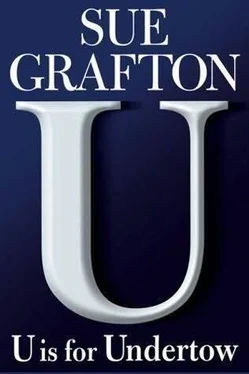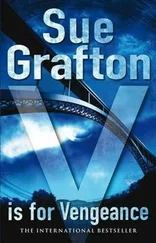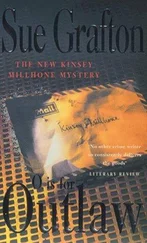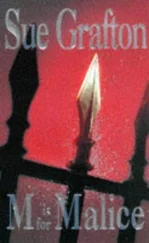Mrs. Fitzhugh returned to the house, intending to call her husband and then phone the police. As she climbed the back steps, she spotted the note that had apparently been left on the side table and consequently fluttered to the floor. The message was block-printed and brief. The kidnapper said her daughter was safe in his keeping and would be returned unharmed in exchange for twenty-five thousand dollars in cash. If the Fitzhughs made any attempt whatever to contact the police or the FBI, the kidnappers would know and Mary Claire would forfeit her life.
All of this became public knowledge four days after the child had been taken. In the interim, the FBI questioned Mary Claire’s parents, who were white-faced and stunned. After the news broke, neighbors, friends, and acquaintances were interviewed, many of them more than once. The case attracted its share of national attention because it involved the only child of a prominent Santa Teresa couple. After the first splash, however, the coverage became repetitive, which suggested that the FBI had cut off the stream of information to the media. No FBI agent was referred to by name, nor was there any mention of investigators at the local level. The Santa Teresa Police Department’s community relations officer issued a statement from time to time, reassuring the public that the investigation was ongoing and that every effort was being made to identify the suspects and recover the child.
As with any major crime, certain critical details were withheld from the public, leaving investigators a means of weeding out the off-kilter citizen, driven by a need to confess. There was no further reference to suspects or persons of interest, though detectives must have combed the area, talking to pedophiles, registered sex offenders, and anyone else whose criminal history seemed relevant. The FBI received tips, sightings of the child in places all across the country. There were also countless calls reporting suspicious behavior on the part of strangers, who’d done no harm at all and whose actions were innocent. Mary Claire Fitzhugh had been swept into the Inky Void and there was no coming back.
Since that time, the papers had run a version of the same article year after year in hopes that something would break. Other kidnap victims were mentioned, anticipating the possibility that someone might recognize a detail and put it together with other facts previously unknown. If Mary Claire was lost, her plight might provoke a confession in another case. For the child herself, the prospects were bleak and had been once the first twenty-four hours had passed without word. At least I understood now why Michael Sutton had been so anxious to unravel the significance of what he’d seen. For my part, the thought of the child’s fate was enough to make me ill.
DEBORAH UNRUH July 1963
For the next three months, the mother-to-be ate so poorly, she gained fewer than fifteen pounds. Her diet consisted largely of beans and rice-a perfect protein, she proclaimed, completely disregarding her unborn baby’s need for proper nutrition. She didn’t believe in prenatal vitamins, claiming that women since the beginning of time had managed to conceive and bear children without the interference of the pharmaceutical companies. Patrick found her attitudes infuriating, but there was no arguing the point. She interpreted any opposition or rebuttal as an assault on her autonomy. He finally threw his hands up and took to leaving the room the minute she walked in.
Most of the time, she kept a sullen distance, but there were moments when she made a minor effort to get along, thus fostering Deborah’s hopes that a bond could be forged, however limited it might be. Her optimism was always short-lived. Shelly’s mood would darken. The unstable elements in her personality would combine, setting off the inevitable explosion. Once she blew up, Greg stepped into the role of mediator, traveling back and forth between the bus and the house. He made excuses, soothing and mollifying first Shelly and then his parents. Deborah almost preferred Shelly’s hysteria to Greg’s pathetic attempts to broker a peace.
Patrick and Deborah took to eating dinner with friends on Friday nights at the Horton Ravine Country Club. According to the gossip, many couples in their social set were experiencing the same dismay, as their offspring, now young adults, got caught up in “alternative lifestyles,” which meant dope, secondhand clothes, long, unkempt hair, and a neglect of personal hygiene. The nights out were their only relief from the tensions at home and their only opportunity to blow off steam.
They’d known Kip and Annabelle Sutton since they’d joined the country club, shortly after moving to Santa Teresa from Boulder, Colorado. The Unruhs were in their forties, while Kip and Annabelle were ten years younger, with school-age children who took up a major portion of their time and energy. For the Suttons, the Friday-night get-together was a welcome respite from parental responsibilities.
Kip was an architect who specialized in commercial properties-office buildings, banks, department stores. Annabelle was a stay-at-home mom, just as Deborah had been in her day. The Suttons’ four children were two, six, eight, and ten, the oldest a girl named Diana. During the first round of martinis, the subject of Greg and Shelly came up, as it did most Friday nights.
Patrick said, “Take a lesson from us. These kids are malcontents and they’re spoiling for a fight. Our accomplishments are worthless as far as they’re concerned. You two have the same trouble coming up only I’m betting it gets worse.”
Annabelle said, “Don’t say that. I have my hands full coping with the terrible twos. Michael was a doll until his second birthday and now here we are, turning to drink.” She plucked an olive from her martini, popped it in her mouth, and then drained her glass.
Kip said, “I don’t see this business with Greg and Shelly as anything new. Kids have always been rebellious at that age, haven’t they?”
Patrick shook his head. “Not like this.”
“Shelly’s a beatnik,” Deborah said. “She told me she lived for months in a crash pad in North Beach, where all the ‘cool cats’ hung out.”
“A beatnik? That’s passé, isn’t it?”
“Not to hear her tell it. She claims she screwed Allen Ginsberg and Lawrence Ferlinghetti in the same six-day period.”
Annabelle looked askance. “She actually told you?”
“Oh, sure. Proud as Punch. I could see she was hoping I’d recoil in horror so she could accuse me of being uptight and out of it. I just sat there and blinked and then asked if she’d ever had the clap.”
Annabelle cracked up. “What’d she say?”
“She said that wasn’t the point. She was experiencing life to the fullest, which was more than I could say.”
Patrick said, “I hadn’t heard that bit. Where was Shawn all this time while she was getting it on?”
“They were all there together-kids, moms, strangers, potheads, and heroin addicts. They played guitars and bongo drums and made money writing poems they sold to tourists on the streets.”
Patrick finished his drink and signaled the waitress for another. Kip raised his hand as well, like two guys bidding on the same lot at an art auction.
Patrick shook his head in exasperation. “What’s wrong with these kids? You give them the best of everything and they end up spitting in your face. This girl knows it all. You should hear her mouth off. She doesn’t have a brain in her head and she’s got the gall to criticize the president of the United States, like she has a clue. She can’t even run her own life. They’re vegetarians, for god’s sake. Do you know how much time and energy that takes?”
Читать дальше












